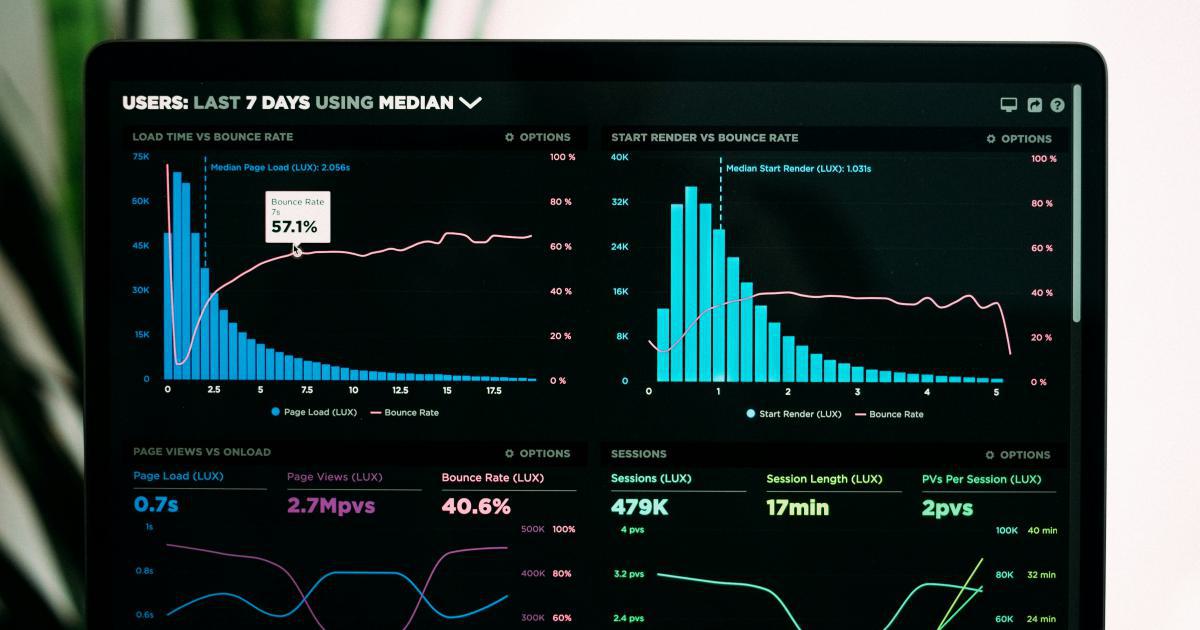How to Target Informational Search Intent for Better Rankings


Understanding Informational Search Intent
Informational search intent refers to the user's desire to find specific information or answer a particular question when they perform a search query. Unlike transactional or navigational searches, where the user is looking to make a purchase or access a specific website, informational searches are focused on gathering knowledge or learning about a topic.
Understanding and targeting informational search intent is crucial for improving your website's visibility and ranking in search engine results pages (SERPs). By aligning your content with the informational needs of your target audience, you can increase the chances of your pages appearing in relevant searches, driving more qualified traffic to your site.
The Importance of Informational Search Intent

Informational search intent is a significant part of the overall search landscape. According to a study by Backlinko, informational queries account for over 80% of all Google searches. This means that the majority of users are seeking information, knowledge, or answers when they perform a search, rather than looking to make a purchase or navigate to a specific website.
By targeting informational search intent, you can:
Improve Visibility and Traffic: When your content is optimized for informational searches, it is more likely to appear in the top search results, increasing the chances of attracting relevant and engaged visitors to your website.
Establish Authority and Credibility: Providing valuable, informative content that addresses users' queries can help establish your website as an authoritative and trustworthy source in your industry or niche.
Nurture Potential Customers: Informational content can be an effective way to attract and nurture leads, as it helps build trust and demonstrates your expertise before they are ready to make a purchase.
Increase Engagement and Conversions: Relevant, high-quality informational content can keep users on your site for longer, leading to increased engagement, reduced bounce rates, and potentially higher conversion rates.
Identifying Informational Search Queries

To effectively target informational search intent, you need to identify the types of queries that indicate users are seeking information. Here are some common characteristics of informational search queries:
Question-Based Queries: Queries that start with words like "what," "why," "how," "who," "when," or "where" often indicate an informational search intent.
Broad, Exploratory Queries: Searches that are broad in nature and don't have a specific goal in mind usually suggest an informational intent.
Research-Oriented Queries: Searches that involve researching a topic, learning about a subject, or seeking in-depth information are typically informational in nature.
Comparison or Evaluative Queries: Searches where users are comparing products, services, or ideas to make a decision often have an informational component.
By identifying these types of informational search queries, you can better understand the specific information needs of your target audience and create content that aligns with their search intent.
Optimizing for Informational Search Intent

Optimizing your content for informational search intent involves a multifaceted approach. Here are some key strategies to help you rank better for informational queries:
Conduct Thorough Keyword Research
The foundation of effective informational content optimization is thorough keyword research. Identify the specific keywords and phrases that your target audience is using to search for information related to your products, services, or industry.
Start by brainstorming broad, informational keywords and phrases, then use keyword research tools like Google Keyword Planner, Ahrefs, or SEMrush to uncover related, long-tail keywords that indicate informational search intent.
Pay attention to the search volume, competition, and intent behind each keyword to prioritize the ones that are most relevant and likely to drive qualified traffic to your site.
Create Comprehensive, In-Depth Content

Once you have identified the informational keywords and phrases you want to target, it's time to create content that addresses these queries in a comprehensive and in-depth manner. Informational search intent often requires more detailed and authoritative content than other types of searches.
When creating informational content, aim to:
Thoroughly Answer the Query: Provide complete, detailed, and well-researched answers to the questions or information needs expressed in the search query.
Offer Valuable Insights: Go beyond simply listing facts or instructions; provide analysis, expert opinions, and unique perspectives that add genuine value for the reader.
Maintain a Helpful and Educational Tone: Adopt a friendly, conversational, and educational tone throughout your content to engage the reader and build trust.
Use Multimedia Elements: Incorporate relevant images, videos, infographics, or other visual elements to enhance the user experience and make the content more engaging.
Organize Content Logically: Structure your content in a clear, easy-to-follow manner, with headings, subheadings, and appropriate formatting to improve readability and scanability.
By creating comprehensive, high-quality informational content, you can better satisfy the user's search intent and increase the likelihood of your pages appearing in the top search results.
Optimize for Search Engine Visibility

In addition to creating valuable informational content, you need to ensure that your pages are optimized for search engine visibility. This involves using specific techniques to improve the discoverability and relevance of your content.
Target Informational Keywords: Incorporate the informational keywords and phrases you identified during your research into your content, including the title, headings, meta tags, and throughout the body text.
Craft Engaging Titles and Descriptions: Write compelling, informative titles and meta descriptions that accurately reflect the content and entice users to click through to your page.
Utilize Semantic Markup: Implement structured data and schema markup to help search engines better understand the context and intent of your content.
Optimize Images and Media: Ensure that all images, videos, and other multimedia elements are properly optimized with relevant alt text, captions, and file names.
Improve Technical SEO: Address technical SEO factors, such as site speed, mobile-friendliness, and crawlability, to enhance the overall search engine visibility of your informational content.
Build Topical Authority: Create a comprehensive content strategy that covers related subtopics and builds your website's authority within your niche or industry.
Earn Backlinks: Actively pursue high-quality backlinks from authoritative sources to signal the value and relevance of your informational content to search engines.
By combining comprehensive, valuable informational content with effective search engine optimization, you can improve your chances of ranking higher for relevant queries and attracting a steady stream of engaged, informational-focused visitors to your site.
Understand User Intent and Behavior

To truly maximize the impact of your informational content, it's essential to understand the user intent and behavior behind the searches you're targeting. This knowledge can help you create content that better meets the needs and expectations of your audience.
Consider the following factors:
Search Context: Understand the context in which users are performing informational searches. Are they looking for quick, concise answers, or are they seeking in-depth, comprehensive information?
Device Usage: Analyze the device preferences of your target audience, as informational search intent may vary between desktop and mobile users.
Content Consumption Patterns: Examine how users interact with and consume your informational content. Are they spending significant time on your pages, or do they quickly bounce back to the SERP?
User Engagement Metrics: Monitor key engagement metrics, such as time on page, bounce rate, and conversion rates, to gauge the effectiveness of your informational content.
Competitor Analysis: Evaluate how your competitors are targeting informational search intent and identify opportunities to differentiate your content and offer a better user experience.
By deeply understanding your audience's informational search intent and behavior, you can continually refine and optimize your content strategy to better meet their needs and outperform your competitors in the SERPs.
Measuring and Optimizing Informational Content Performance

Regularly measuring and analyzing the performance of your informational content is crucial for identifying areas of improvement and fine-tuning your strategy. Here are some key metrics and techniques to consider:
Analyze Relevant Traffic and Engagement Metrics
Focus on the following metrics to gauge the effectiveness of your informational content:
Organic Traffic: Monitor the traffic to your informational pages from search engine results, as this indicates how well your content is ranking for relevant queries.
Time on Page: Examine the average time users spend on your informational pages, as this can signal how engaged and interested they are in the content.
Bounce Rate: Track the bounce rate for your informational pages, as a lower bounce rate suggests that users are finding the content valuable and relevant.
Conversion Rate: If your informational content is designed to nurture leads or drive other desired actions, monitor the conversion rate to measure its effectiveness.
User Behavior Flow: Analyze the user journey through your informational content to identify any bottlenecks or areas where users are dropping off.
Continuously Optimize and Iterate

Based on the data and insights you gather, continuously optimize and iterate your informational content strategy:
Identify Top-Performing Content: Recognize the informational pages that are driving the most organic traffic, engagement, and conversions, and use these as models for future content creation.
Refresh and Update Existing Content: Regularly review and update your informational content to ensure it remains accurate, relevant, and up-to-date.
Expand on Successful Topics: Identify informational topics or queries that are performing well and create additional, related content to further build your authority and visibility.
Experiment with Content Formats: Try different content formats, such as in-depth guides, video tutorials, or interactive tools, to see what resonates best with your target audience.
Leverage User Feedback: Actively solicit feedback from your audience, either through surveys, comments, or user testing, to understand how you can improve your informational content.
Monitor Competitor Activity: Keep an eye on how your competitors are targeting informational search intent and adapt your strategy accordingly.
By continuously measuring, analyzing, and optimizing your informational content, you can ensure that your website remains a valuable and authoritative resource for your target audience, driving sustainable organic traffic and potentially improving your overall search engine rankings.
Conclusion
Targeting informational search intent is a crucial element of a well-rounded search engine optimization (SEO) strategy. By understanding the informational needs of your target audience, creating comprehensive and valuable content, and optimizing for search engine visibility, you can improve your website's ranking and attract a steady stream of engaged, qualified visitors.
Remember, the key to success in informational search intent optimization lies in continually analyzing your performance, iterating on your content strategy, and adapting to the evolving needs and behaviors of your audience. By staying ahead of the curve and providing the most relevant and informative content, you can establish your website as an authority in your industry and reap the benefits of increased organic traffic and potential conversions.
Are You Crushing It in Internet Marketing?
Struggling to boost your online visibility and traffic? Semrush is the ultimate platform for digital marketers like you. With powerful SEO tools and competitive data insights, you can optimize your website, content, and campaigns for maximum impact.
Join over 7 million marketers already using Semrush to outrank their competitors, drive more qualified leads, and grow their businesses online. Get started today with a 7-day free trial, and unlock the full potential of your internet marketing strategy.
Unlock the Power of SEO with Semrush
Are you struggling to boost your online visibility and drive more traffic to your website? Semrush has the solution.
Our comprehensive platform offers advanced keyword research, competitor analysis, and SEO audits, empowering you to optimize your content and outrank your competition.